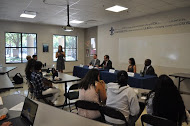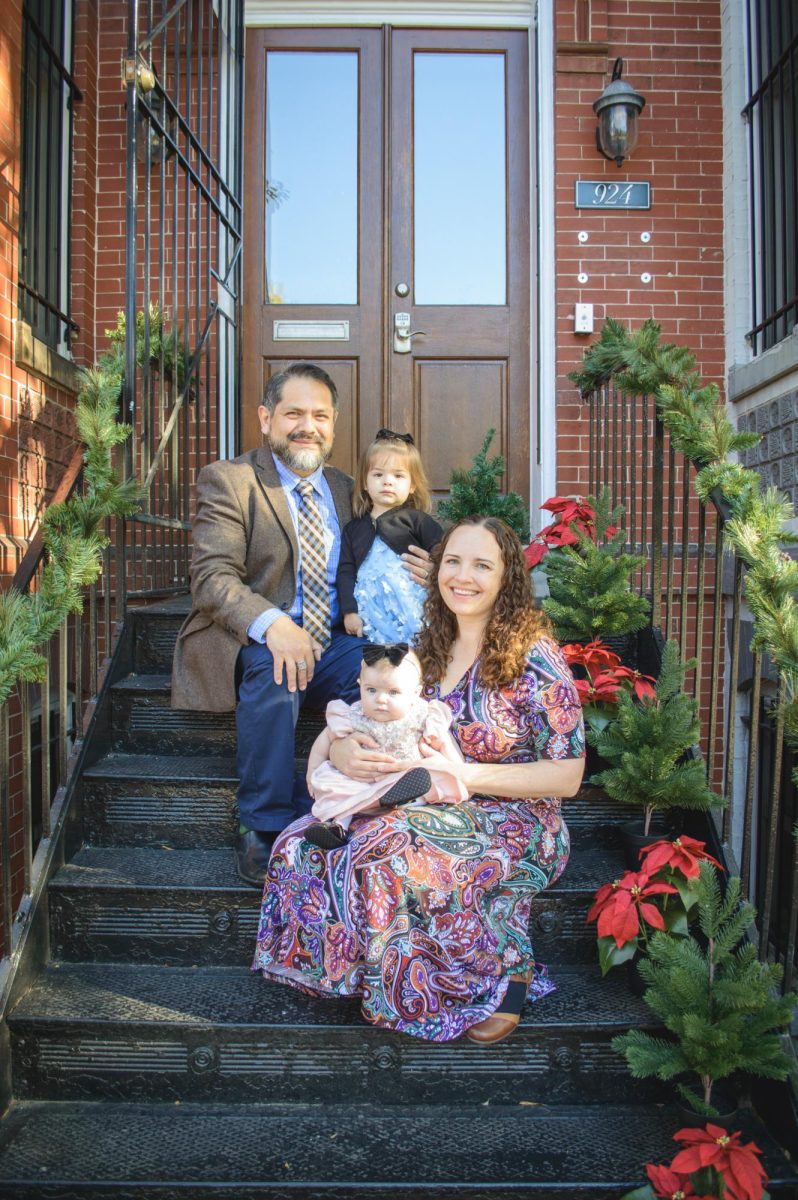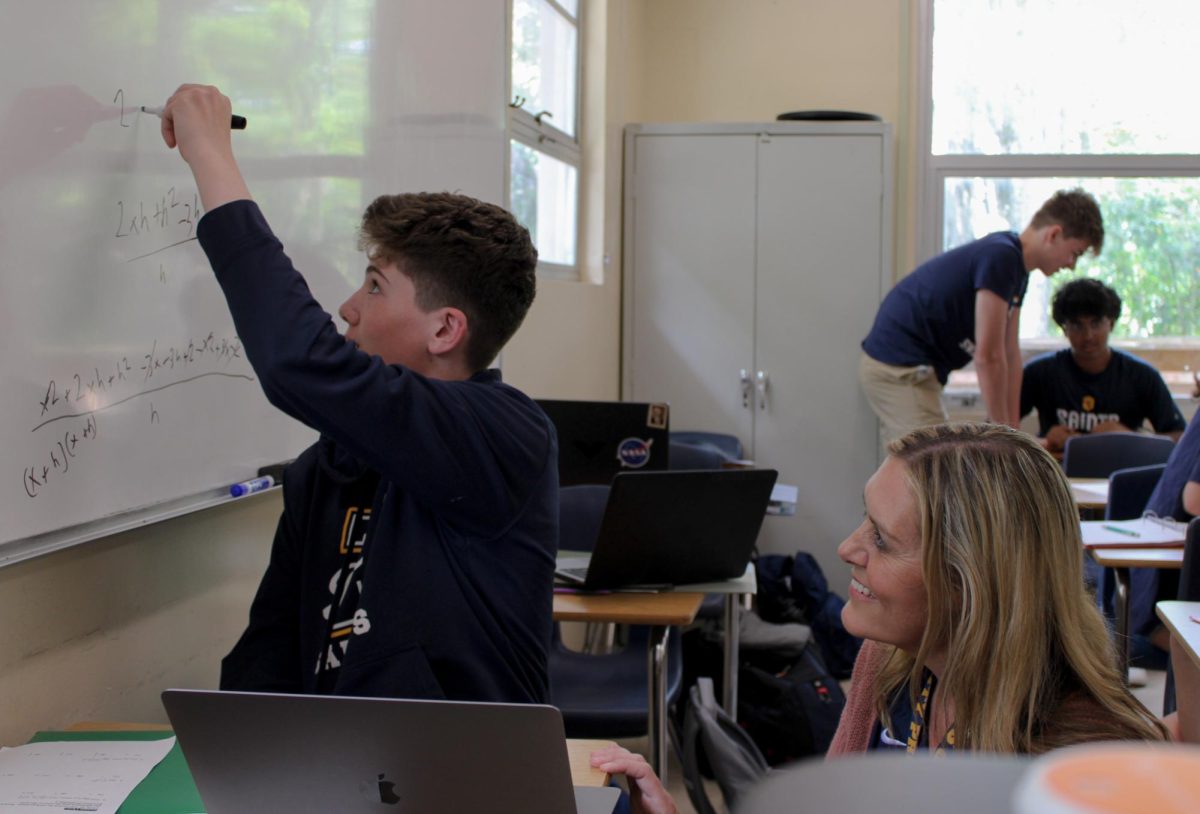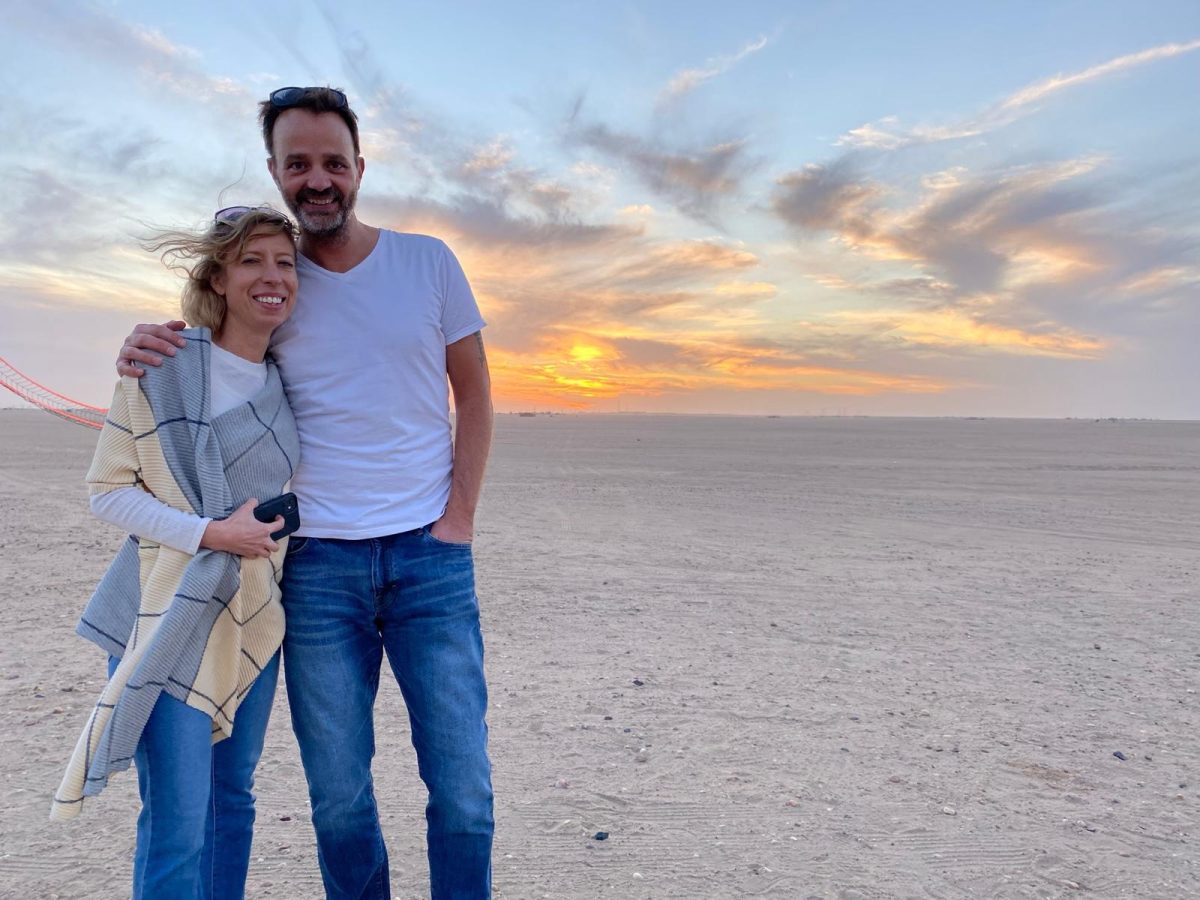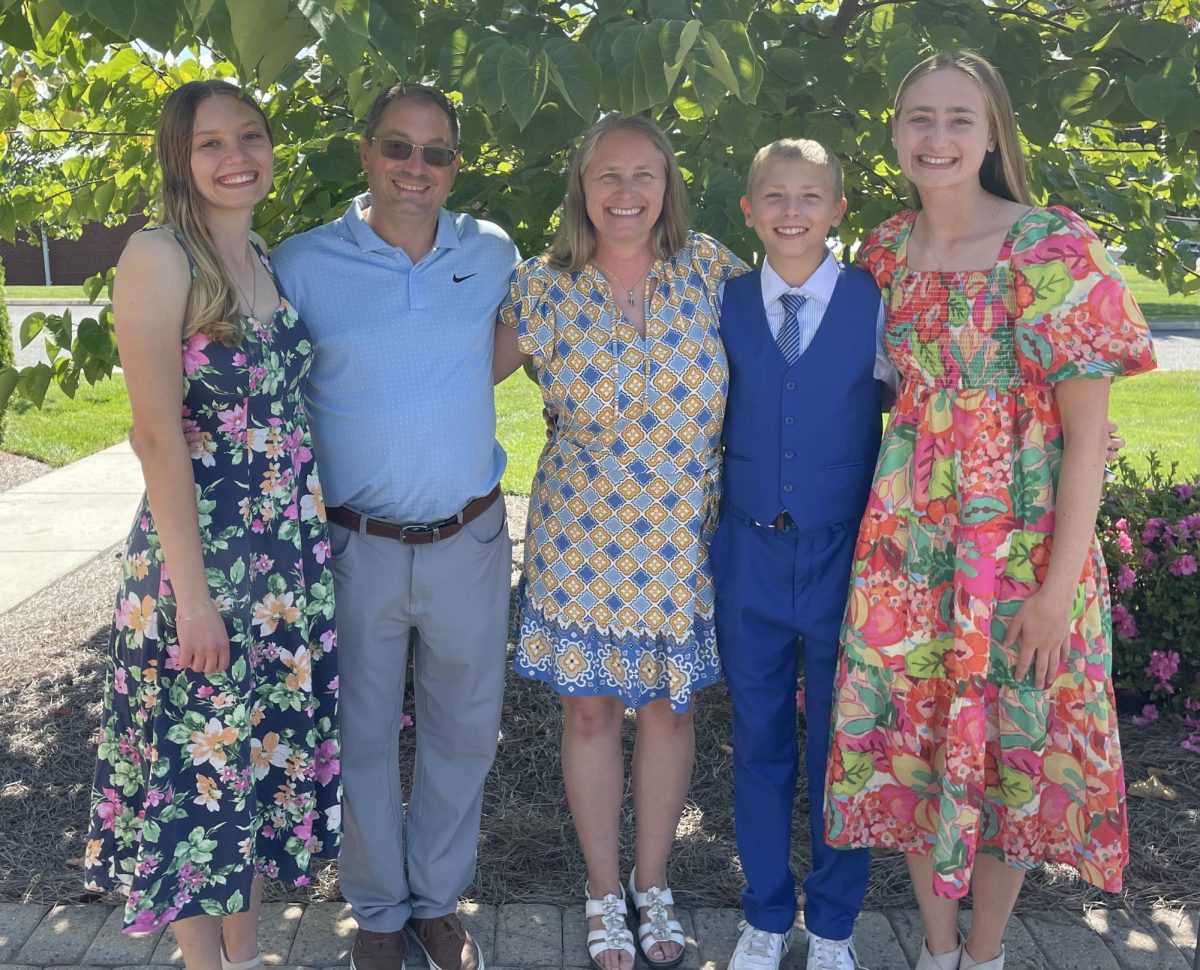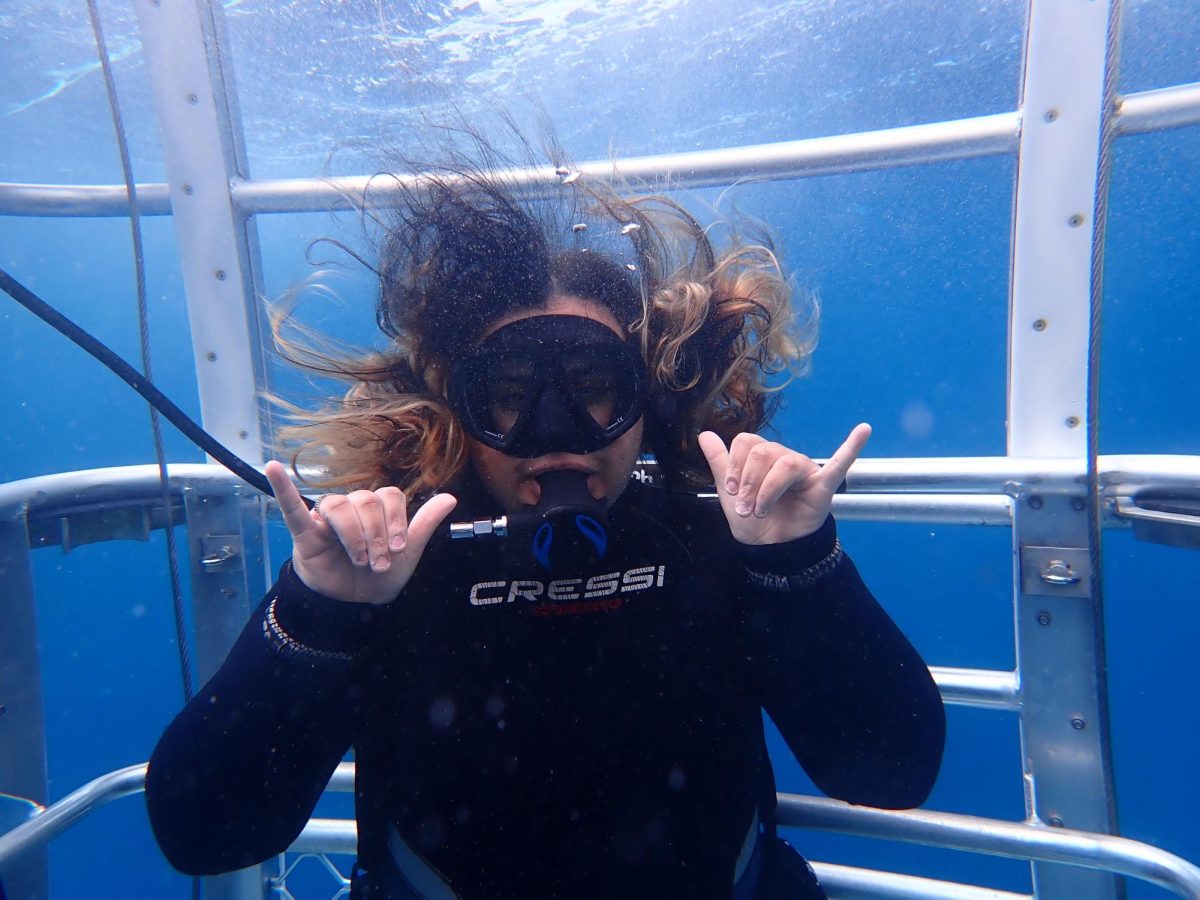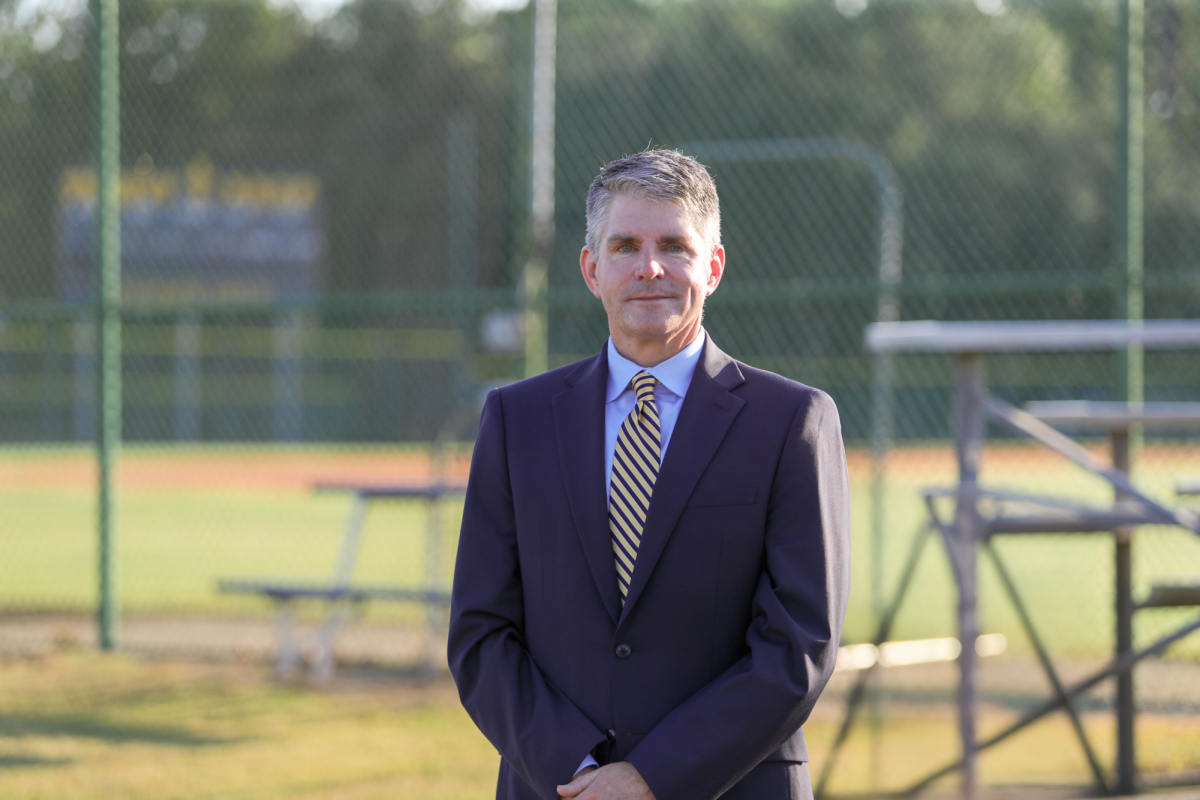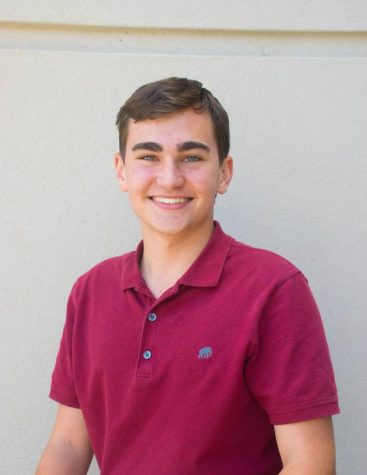Four Trinity Prep alumni with careers in law recently held a lunch panel with juniors and seniors to talk about future jobs in their field. The Nov. 11 lunch was held in a question and answer format, allowing students to get any of their questions regarding future careers in law answered.
Alumni Relations Director Kimberly Trammell served as the moderator for the panel, asking student-submitted questions for any of the panelists to answer. One of the first subjects that came up was how the alumni got started in the field of law.
Richard Lord, Lawrence “Hank” Hornsby and Paul C. Perkins, Jr. all noted that Trinity teachers played an important part in sparking their interest for law. Both Lord and Hornsby said that former economics teacher Robert Fulmer played a major factor in their decision. Perkins said that former civics teacher Andy Denicole got him interested in politics, which led him to pursue a degree in law.
Lord initially wanted to be a doctor, but he found that pre-med was not his best fit. Taking his knowledge of high school economics, Lord went on to get an economics degree and then entered law school. He noted how prepared he felt after years at Trinity.
“[Trinity students] could write a lot better than any of the other classmates,” Lord said.
Perkins, looking for a career in politics, entered law school because he thought it would be a good way to gain valuable experience for a political job. He soon found that he liked studying law much more, so he decided to stay in the field and see where it took him. Perkins didn’t have an idea about what exactly he wanted to do, so he accepted some entry-level jobs at law firms.
“Your first few jobs can really determine what fields you get into, and that’s what happened to me,” Perkins said.
He continually emphasized the fact that students can go to whatever school they want before a career in law. He encouraged students to major in what they love and then apply that knowledge to a career in law.
“Law schools want people with varied interests, not just political science majors,” Perkins said.
The next topic that came about was how students could get experience in law before going to law school.
“When you are in college, you should find out if there is a law school associated with the college,” Lord said. “If so, see if there are pre-law groups or advising programs that will give you some light into a law career.”
Lord also brought up the popular idea of shadowing. Shadowing, in terms of law, is when a prospective student interested in law follows a lawyer around for a period of time. They are able to observe the inner workings of the field by going to trials, mediations and other hearings.
Hornsby advised students to go to courthouses in their free time because most trials are open to the public. He said that as a lawyer, it is beneficial to watch other lawyers during time off to gain experience.
Hannah Robertson Miller first worked as a clerk before entering the field as a lawyer in recent years. She was able to write judicial opinions and observe trials. Miller said that these experiences helped her the most when she decided to become a lawyer.
“I learned a lot about what’s effective and what’s not,” Miller said. “The [lawyers] that are the most effective are the ones who are civil towards one another and the judge.”
Miller’s time as a clerk turned the conversation to other types of jobs in the law field. While Hornsby and Perkins were always litigators, Lord decided to become a meditator. By being a meditator, Lord is able to keep disputing parties out of court, sparing time and expenses. He said the job worked for him because he preferred not to be in the courtroom environment.
The alumni also brought up their “war stories,” where they talked about their most meaningful cases. Perkins brought up a case where a Winn-Dixie worker had his foot amputated after an accident involving a forklift. Since the worker had an intellectual disability, the company blamed him for his injury and refused to pay for surgery. Perkins was able to get a settlement that paid for the worker’s expenses, saving him and his family from possible bankruptcy and homelessness. Lord recalled a mediation case where he had to run back and forth between two cars containing disputing parties, which got a good laugh from the audience.
From start to finish, it was clear that many students were captivated listening to the alumni’s experiences. Judging by the looks of these juniors and seniors, the law and litigation world of tomorrow is in good hands.




